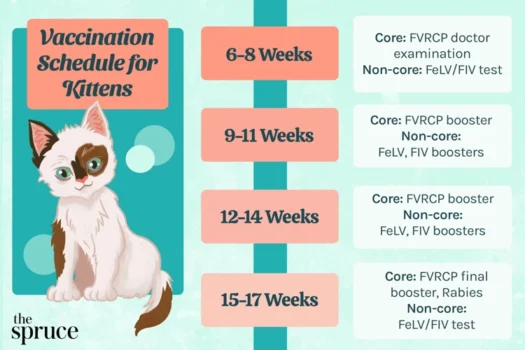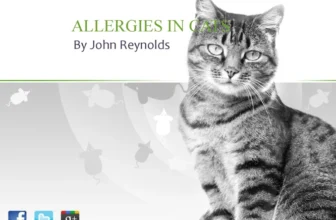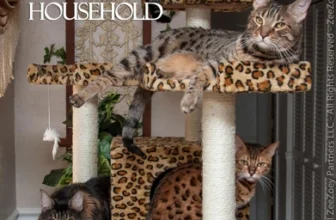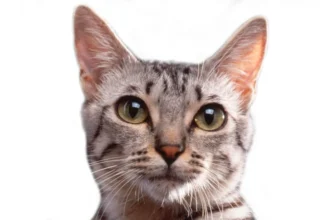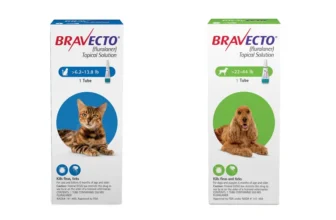As a pet owner, you want to make sure your California Spangled cat is healthy and protected against common illnesses. One crucial aspect of responsible pet ownership is understanding the importance of vaccination schedules. Vaccinations prevent cats from contracting harmful diseases, and following a proper schedule is key to ensuring their effectiveness. In this article, we will go over the basics of vaccination schedules for California Spangled cats, the common vaccines your feline friend may need, and other important factors to consider, so you can keep your furry companion healthy and happy.
What is a Vaccination Schedule?
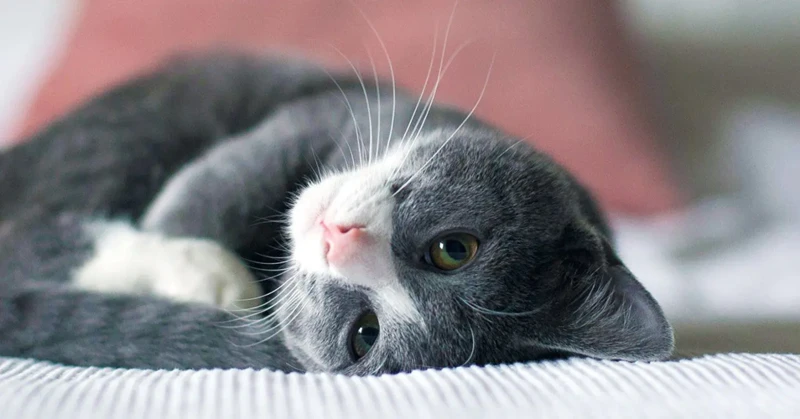
A vaccination schedule is a plan that outlines the recommended timeline and frequency of administering vaccines to your California Spangled Cat. Vaccines play a crucial role in keeping your feline companion healthy and disease-free, making it essential to follow the right schedule accordingly. An appropriate vaccination schedule can ensure your cat is protected against all major diseases and infections. It’s important to understand the role of vaccinations to ensure your cat receives the right shots at the right time. You can learn more about common vaccines used in California Spangled Cat vaccination schedules by following this link.
The Role of Vaccines
Vaccines are carefully formulated and designed to help protect California Spangled cats from a variety of viral and bacterial infections. Vaccines work by introducing a weakened or dead form of the pathogen into the cat’s body, allowing the immune system to recognize and prepare for potential future invasions. By recognizing the pathogen, the immune system can mount a response more quickly and effectively.
Vaccines provide the following benefits:
- Prevention of disease: Vaccines help prevent cats from getting sick from certain infections. This means that when they come in contact with the virus or bacteria in the future, they will have a lower chance of contracting the infection.
- Reduction of severity: Even if the cat does contract the infection, being vaccinated can reduce the severity of the illness, meaning that the cat will recover more quickly and with less discomfort.
- Protection of vulnerable populations: Vaccinating your California Spangled cat also indirectly helps protect kittens or other cats in the community who may not yet have developed their immune systems.
- Preventing outbreaks: The more cats that are vaccinated, the less likely there will be an outbreak of a particular disease.
It is essential to note that vaccines are not 100% foolproof, and vaccinated cats can still contract diseases. However, vaccinated cats are more likely to survive and recover from the disease.
If you want to learn more about vaccination schedules, continue reading our article on CA Spangled Cat Vaccination Schedule.
Why Schedules are Important
Vaccination schedules are crucial for the health of California Spangled Cats, as they ensure timely and effective protection against a wide range of diseases. Here’s a closer look at why schedules are so important:
| Reasons Why Schedules are Important | Explanations |
|---|---|
| Immunity | Vaccinations are essential to build and maintain immunity against various diseases. |
| Prevention | Vaccines are the most effective way to prevent diseases that can be life-threatening or have potentially severe effects on a cat’s health, like feline leukemia and rabies. |
| Spread of Disease | By following a vaccination schedule, pet owners contribute to the control and prevention of the spread of diseases among cats and other animals. |
| Required by Law | Some vaccinations are required by law, like rabies vaccination, and failure to comply can lead to legal repercussions or other penalties. |
Vaccines are designed specifically to work best when given at certain stages of a cat’s life. Delaying vaccination or missing a scheduled dose can reduce the effectiveness of the vaccine, leaving your cat more vulnerable to diseases. This is why it’s critical to stick to the recommended vaccination schedule for your California Spangled Cat’s health. To learn more about vaccination schedules and the importance of vaccinations for California Spangled Cats, visit our page on California Spangled Cat vaccinations or California Spangled Cat vaccination schedules.
Common Vaccines for California Spangled Cats
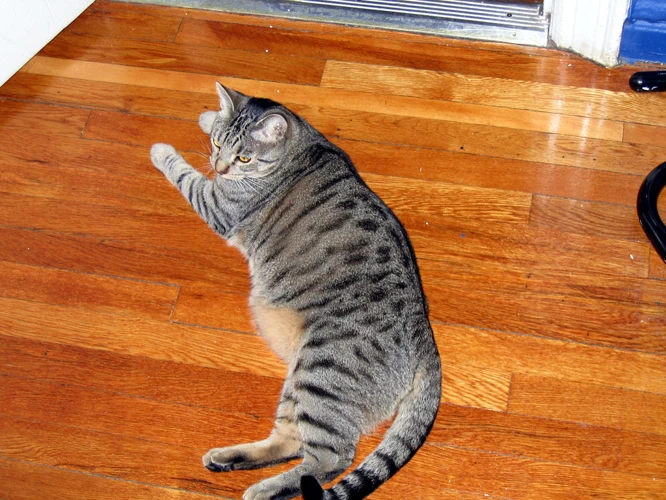
Vaccines are an important tool in keeping cats healthy and protected from various diseases. The vaccines are specifically designed to stimulate the cat’s immune system to develop immunity to specific diseases. California Spangled cats need specific vaccines to meet their unique needs. Some of the most common vaccines recommended for California Spangled cats are rabies, feline viral rhinotracheitis (FVR), feline calicivirus (FCV), feline panleukopenia virus (FPV), and chlamydia felis.
Rabies vaccine: Rabies is a serious viral disease that is transmitted through the saliva of infected animals. It can affect cats and other mammals, including humans. Rabies vaccines are mandatory by law in many areas to prevent the spread of this deadly disease. The vaccine is usually given when the kitten is around 12-16 weeks old and then every 1-3 years, depending on the state’s regulations.
Feline viral rhinotracheitis (FVR) vaccine: FVR is a highly contagious viral respiratory disease that can cause sneezing, coughing, fever, and nasal discharge. It can also lead to secondary bacterial infections, which can be dangerous for cats. The FVR vaccine is usually administered in combination with the Calicivirus vaccine, known as the FVRCP vaccine. Kittens should receive the initial vaccination series followed by booster shots every 1-3 years.
Feline calicivirus (FCV) vaccine: FCV is another highly contagious respiratory disease that causes similar symptoms to FVR. The vaccine is also administered in combination with the FVR vaccine as part of the FVRCP vaccine. This vaccine should be given to kittens at the same time as their FVR vaccine and followed by booster shots every 1-3 years.
Feline panleukopenia virus (FPV) vaccine: FPV is a very contagious and deadly virus that causes severe gastrointestinal and immune system symptoms. This disease is also known as feline distemper. Kittens should receive the initial shot at six weeks of age and then the booster shots should be given regularly every 1-3 years.
Chlamydia felis vaccine: Chlamydia is a bacterial infection that can cause upper respiratory infections in cats. This disease is usually transmitted through contact with infected cats or their secretions. The vaccine is usually administered in combination with the FVRCP vaccine. In areas where chlamydia infection is common, annual vaccination is recommended.
It’s important to note that not all vaccines are required for every cat. A licensed veterinarian will determine the appropriate vaccination schedule based on the cat’s age, health status, lifestyle, and risk factors. It’s essential to follow the recommended vaccination schedule to ensure that the cat is protected against infectious diseases.
Vaccination Schedule for California Spangled Cats
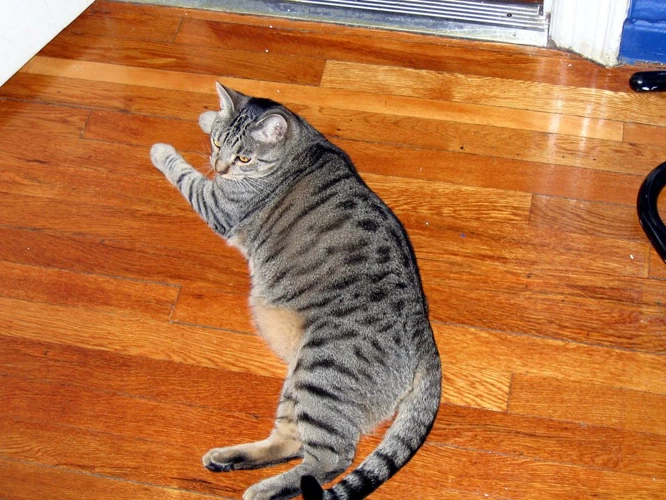
Keeping track of the vaccination schedule is vital for ensuring the health and well-being of your California Spangled cat. Vaccinations are a preventative measure against a wide range of viruses and diseases that can impact feline health. Whether you have a new kitten or an adult cat, it is important to understand the recommended vaccination schedule and follow it closely. In this section, we will delve into the specifics of the vaccination schedule for California Spangled cats, including the different types of vaccinations recommended and the appropriate timing for each one.
Kitten Vaccinations
Kitten vaccinations are especially important for California Spangled cats, as they build up immunity to various diseases and prevent future health problems. It is essential to start vaccinations early, as kittens are born with a limited immune system. Here are some of the common kitten vaccinations you should consider for your California Spangled cat:
- Feline Distemper (Panleukopenia) Vaccine: This vaccine protects against a highly contagious virus that can be fatal in kittens. It is usually given in a series of three shots, starting around six to eight weeks of age.
- Feline Calicivirus Vaccine: This vaccine protects against a respiratory virus that is common in cats. It is generally given in a series of three shots, starting around six to eight weeks of age.
- Feline Herpesvirus-1 Vaccine: This vaccine protects against another common respiratory virus in cats. It is generally given in a series of three shots, starting around six to eight weeks of age.
- Rabies Vaccine: This vaccine protects against a deadly virus that can affect all mammals, including humans. In most states, it is required by law for cats to be vaccinated against rabies. It is usually given when a kitten is around twelve weeks of age.
It is also important to note that some kitten vaccinations may have side effects, such as fever, lethargy, or soreness at the injection site. These symptoms usually subside within a day or two. If you have any concerns about your kitten’s health after receiving vaccinations, contact your veterinarian.
It is crucial to follow the vaccination schedule recommended by your veterinarian to ensure that your kitten receives the full protection they need. Missing or delaying shots can put your kitten at risk of contracting serious diseases.
Starting your California Spangled kitten on the appropriate vaccination schedule is vital to ensuring their long-term health and well-being. By vaccinating your kitten, you set them up for a healthy and happy life.
Adult Cat Vaccinations
After a kitten completes its initial round of vaccinations, it becomes an adult cat and will require regular booster shots to maintain protection against common diseases. Here are some important vaccines for adult California Spangled Cats:
- Rabies: This viral disease is highly contagious and fatal. Even indoor cats should receive this vaccine since they can still be exposed to rabies through contact with wild animals or bats. Rabies vaccine is given annually or every three years depending on the vaccine type.
- Feline Distemper: Also known as feline panleukopenia, this disease is caused by a virus and spreads through contact with infected feces or urine. Symptoms include vomiting, diarrhea, and lethargy. As a kitten, cats receive a series of vaccinations for feline distemper. After the initial vaccination series, booster shots are required every 1-3 years.
- Feline Herpesvirus-1 (FHV-1) and Feline Calicivirus (FCV): These two viruses can cause respiratory infections in cats. Symptoms may include sneezing, nasal discharge, and conjunctivitis. Cats can receive a combination vaccine for FHV-1 and FCV, which needs to be boosted every year.
- Feline Leukemia Virus (FeLV): This virus is highly contagious and spreads through infected saliva, urine, and feces. Common symptoms include fever, lethargy, and weight loss. FeLV vaccine is recommended for outdoor cats, and it is typically given as a two-shot series followed by annual booster shots.
It is important to work with a veterinarian to determine the appropriate vaccination schedule for your adult California Spangled Cat. Factors such as lifestyle and environment, age and health, and possible risks and side effects should all be taken into consideration. By keeping your cat up-to-date on their vaccinations, you can help ensure their long-term health and well-being.
Factors Affecting Vaccination Schedule
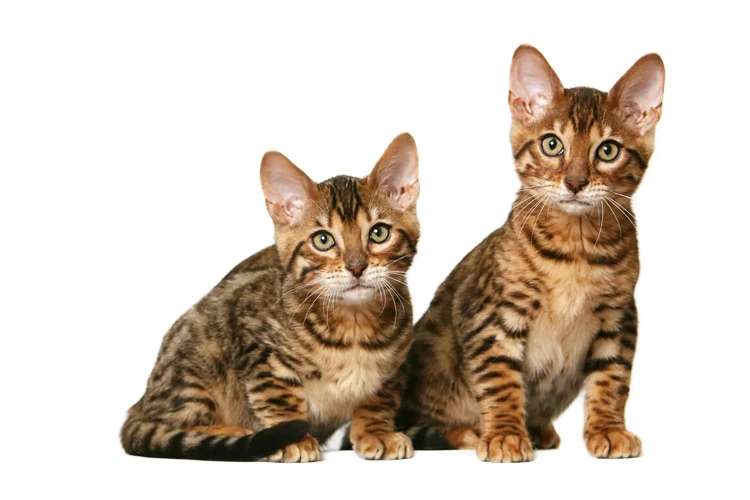
When it comes to creating a vaccination schedule for your California Spangled cat, there are various factors that must be considered. Understanding these factors is essential for ensuring the health and well-being of your furry friend. In this section, we will explore the key elements that can impact the vaccination schedule for your cat, including age, health, lifestyle, environment, and possible risks and side effects. By being informed about these factors, you can better protect your pet and provide them with the best possible care.
Age and Health
When it comes to determining the vaccination schedule for a California Spangled cat, age and health are crucial factors to consider. Below are some points to keep in mind regarding the impact of age and health on vaccination:
Factors relating to age:
- Young kittens are particularly vulnerable to certain diseases, which makes early vaccination extremely important.
- Kittens should receive their first vaccines between six and eight weeks of age, followed by booster shots every three to four weeks until they are around 16 weeks old.
- After the initial series of kitten vaccines, a booster shot is required for one year. After that, depending on the type of vaccine administered, booster shots may be needed every one to three years.
Factors related to health:
- Before administering vaccines, the health status of a cat must be assessed. If a cat is ill, vaccines may be postponed until the cat is healthy again.
- Cats with chronic or serious health issues may require a specialized vaccination schedule. This is because their immune systems may not respond to vaccines in the same way as healthy cats.
- It is important to consult a veterinarian about a cat’s vaccination schedule and to follow their recommendations based on the cat’s age and health.
When it comes to age and health, it is essential to have your California Spangled cat’s health evaluated by a veterinarian. It is also recommended to keep a record of their vaccination schedule and to follow up with the necessary booster shots to ensure maximum protection from diseases.
Lifestyle and Environment
The lifestyle and environment of a California Spangled Cat can also have a significant impact on their vaccination schedule. Here are some factors to consider:
Indoor vs. Outdoor: If your cat primarily stays indoors, they may not require certain vaccinations that an outdoor cat would need. For example, a cat who never ventures outside may not need a vaccine for feline leukemia. On the other hand, a cat who spends time outdoors or lives in an area with a high prevalence of certain diseases may need additional vaccinations.
Travel: If you plan on taking your California Spangled Cat on trips with you, they may need additional vaccinations depending on your destination. For example, if you’re traveling to a region with a high prevalence of rabies, your cat may need a rabies vaccine.
Other Pets: If your cat lives with other pets, their vaccination schedule may need to be adjusted to ensure they’re adequately protected. For example, if you have a dog who spends time outdoors and is at risk for exposure to Lyme disease, your cat may need to be vaccinated as well.
Age: As cats age, their vaccination needs may change. Your veterinarian can help you develop an appropriate vaccination schedule for your cat based on their age and overall health.
Overall Health: If your cat has underlying health issues, their vaccination schedule may need to be adjusted. For example, a cat with a weakened immune system may need to receive certain vaccines more frequently.
Remember, it’s important to work closely with your veterinarian to develop a vaccination schedule that’s customized to your cat’s unique needs and lifestyle. By staying up to date with your cat’s vaccinations, you can help keep them healthy and protected against a variety of diseases.
Possible Risks and Side Effects
Just like any other medical procedure, vaccinations come with potential risks and side effects. However, the likelihood of experiencing adverse reactions is generally low compared to the risks of not vaccinating your California Spangled Cat. Here are some of the possible risks and side effects that you should be aware of:
- Allergic reactions: Some cats may be allergic to certain vaccine components, which can lead to an anaphylactic shock. Signs of an allergic reaction can include vomiting, diarrhea, facial swelling, difficulty breathing, and collapse. If you notice any of these symptoms after vaccination, you should seek emergency veterinary care immediately.
- Lethargy and fever: It is common for cats to feel a bit lethargic or develop a low-grade fever after vaccination. This is usually a minor and temporary side effect that should resolve within a day or two. You can soothe your cat’s discomfort by providing a warm and comfortable environment.
- Tumor formation: In rare cases, cats may develop tumors at the injection site after receiving vaccines. This condition, called feline injection site sarcoma, is more common in certain breeds and may require surgical intervention. To minimize the risk of tumor formation, your veterinarian may recommend rotating vaccine injection sites, using non-adjuvanted vaccines, and avoiding over-vaccination.
- Immunodeficiency: Vaccines work by stimulating your cat’s immune system to produce protective antibodies. However, some cats may have an underlying condition that compromises their immune response, such as feline immunodeficiency virus (FIV) or feline leukemia virus (FeLV). Vaccinating these cats may not be effective or could even exacerbate their health problems. If your cat has any chronic illness, it is important to discuss vaccination with your veterinarian.
While the risks and side effects of vaccination should not be taken lightly, the benefits of protecting your California Spangled Cat from serious and life-threatening diseases outweigh the potential drawbacks. In most cases, the mild and transient side effects of vaccination are far better than the devastating consequences of a preventable disease.
Vaccination Records and Reminders
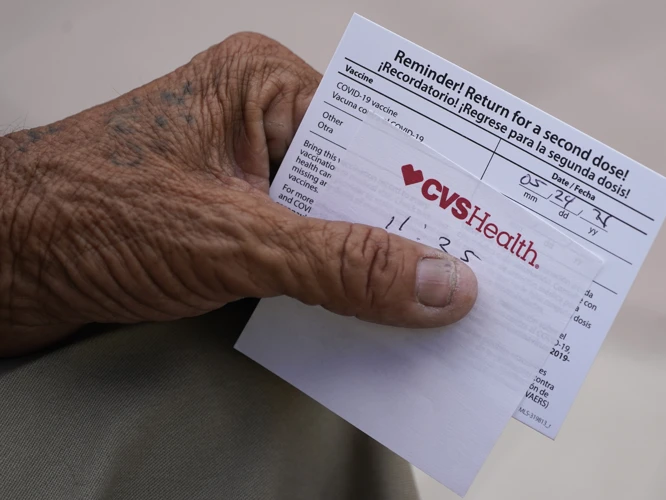
Keeping proper vaccination records and setting reminders for upcoming vaccinations is crucial for ensuring the health and well-being of your California Spangled cat. It is essential to have a clear record of all vaccinations, including the dates administered, the type of vaccine, and the name of the veterinarian who administered them.
It is recommended to keep physical copies of the records and also have a digital backup, such as an email or a phone app. This backup will be helpful in case the physical records get lost or damaged. It is also beneficial to have a record when traveling or during emergency situations where medical records can be required.
Setting up reminders for upcoming vaccinations and booster shots is equally important. You don’t want to miss out on essential vaccinations, leaving your cat at risk of contracting deadly diseases. You can set reminders by using the alarm or calendar features in your phone or computer. You can also talk to your veterinarian to schedule appointments in advance, allowing you to set reminders for upcoming visits.
It’s essential to note that vaccination schedules may vary, depending on the cat’s age, health, and previous vaccination programs. Updating your records as necessary and consulting with your veterinarian for personalized advice is vital.
Vaccination records and reminders are not only important for your California Spangled cat’s health but also for public safety. Having proof of vaccinations is required in many places, such as pet hotels, boarding facilities, and even some rental properties.
Vaccination records and reminders play a significant role in ensuring the ongoing health of your California Spangled cat. By keeping up-to-date records and setting reminders for upcoming vaccinations, you can keep your cat healthy and happy while abiding by the law.
Cost of Vaccination
Keeping your California Spangled cat up-to-date with their vaccinations can help prevent illnesses and infections, but it is important to keep in mind the cost that comes with it. The cost of vaccinations can vary depending on a number of factors, including the type of vaccine, the veterinarian you choose, and your location.
Type of Vaccine: The cost of vaccinations can vary depending on which vaccines your cat needs. Some vaccines, such as the core vaccines recommended for all cats, may cost less than non-core vaccines that are specific to certain illnesses. It is important to discuss with your veterinarian which vaccines are necessary for your California Spangled cat.
Veterinarian: The cost of vaccinations may also vary depending on the veterinarian you choose. Some veterinarians charge a lower fee for vaccinations, while others may charge a higher fee for the same vaccines. It is important to shop around and find a veterinarian that you trust and who offers reasonable prices for vaccinations.
Location: The cost of vaccinations may also vary depending on where you live. Urban areas may have higher prices for vaccines compared to rural areas. This is because the cost of living is generally higher in cities, which can lead to higher veterinary costs.
In addition to the cost of the actual vaccinations, there may also be additional fees associated with veterinary visits. Some veterinarians may charge an office visit fee or a fee for administering the vaccine. These additional fees can add up and increase the overall cost of vaccinating your California Spangled cat.
It is important to factor in the cost of vaccinations when owning a California Spangled cat. While it may seem like an additional expense, the cost is much lower than the cost of treating a serious illness or infection that could have easily been prevented with proper vaccinations. Be sure to discuss the cost of vaccinations with your veterinarian and consider alternative options if the cost exceeds your budget.
Conclusion
In conclusion, ensuring that your California Spangled cat gets the proper vaccinations on schedule is essential to maintaining their health and well-being. Vaccines protect against a wide range of illnesses and diseases that can be life-threatening for your furry friend. By creating a vaccination schedule and following it diligently, you can help keep your cat healthy and avoid costly and painful health complications down the road.
It’s also important to note that vaccination schedules can vary based on factors such as age, health, lifestyle, and environment. Discussing your cat’s unique needs with a veterinarian can help determine the appropriate vaccination schedule and any potential risks or side effects.
Keeping accurate vaccination records and setting reminders for future appointments is crucial for staying on schedule and ensuring your cat remains protected. The cost of vaccinations may vary but is a small price to pay for the peace of mind that comes with knowing you are keeping your California Spangled cat safe and healthy.
In short, taking the time to understand the importance of vaccination schedules and prioritizing your cat’s health is an investment in their long-term well-being. By being proactive and staying on top of their vaccinations, you can help keep your feline companion healthy and happy for many years to come.
Frequently Asked Questions
What are vaccines and how do they work?
Vaccines help prepare a cat’s immune system to fight disease-causing organisms by imitating the infection. Essentially, it is a dead or weakened version of the disease that allows the immune system to build the necessary antibodies to protect the cat.
What diseases can California Spangled Cats be vaccinated against?
Common vaccines for California Spangled Cats include those protecting against panleukopenia, calicivirus, rhinotracheitis, and rabies. Your vet may also recommend optional vaccines for diseases such as feline leukemia virus and chlamydia.
Why are vaccination schedules important?
Following a vaccination schedule ensures that the cat receives all necessary vaccines at the appropriate time. Deviating from the schedule could result in a delay in a cat’s protection from certain diseases, leaving them vulnerable to potentially fatal illnesses.
How often should a kitten be vaccinated?
Most kittens start their vaccinations at around 8-10 weeks of age and require vaccine boosters every 3-4 weeks until they reach 16 weeks of age.
When should an adult cat receive its first vaccines?
If an adult cat has never been vaccinated or has an unknown vaccination history, they should receive the initial vaccines as soon as possible. This includes the core vaccines for panleukopenia, calicivirus, and rhinotracheitis.
Are there factors that can impact a cat’s vaccination schedule?
Yes, a cat’s age, health, lifestyle, and environment can all affect the timing and frequency of vaccinations they need.
What are the potential risks and side effects of vaccinations?
Common side effects include minor fever, swelling at the injection site, and lethargy. More serious reactions such as anaphylaxis or immune-mediated disease are rare.
How much should vaccinations cost for a California Spangled Cat?
The cost of vaccinations varies depending on the veterinarian and location. Typically, kitten vaccines cost more at around $100-300 for the initial series, while adult cat vaccines range from $50-100 per vaccine.
Can an indoor cat skip certain vaccines?
While indoor cats may have a lower risk of exposure to certain diseases, it is still recommended that they receive all core vaccines. Optional vaccines can be discussed with your veterinarian.
How often should a cat’s vaccination records be updated?
It is important to keep vaccination records up to date and provide them to any new vet the cat may see. Typically, vaccination records should be checked annually during the cat’s wellness exam.

